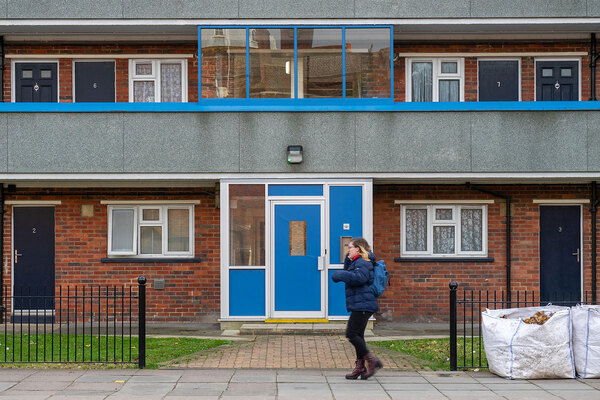You are viewing 1 of your 1 free articles

Rachael Williamson is head of policy and external affairs at CIH, and Robert Sugden is head of communities at HACT
If we want to hear from communities, we need to be in the community
Rachael Williamson and Rob Sugden explain the work the Chartered Institute of Housing (CIH) and HACT are doing to develop community hubs
Last summer, the Chartered Institute of Housing and the National Housing Federation launched the Better Social Housing Review (BSHR), led by an independent panel with experience of the social housing sector.
Its report, published in December, included a challenging set of findings and recommendations. This included a recommendation that housing associations should develop a “proactive local community presence”.
The review panel found that too many residents were concerned about reduced face-to-face contact with landlords, which can make it difficult to resolve issues, particularly where English is not a first language.
They also pointed to a lack of organisational community presence in some areas. Based on some of the positive examples the panel saw, they recommended that housing associations seek to create more community-based hubs, either by engaging with existing ones or setting up new ones.
“The principles of proactively working to increase the landlord’s physical presence should apply across the sector”
While recommending a focus on creating and supporting communal spaces, the panel recognised the concept of a specific community hub may not be appropriate for all housing providers. However, it noted that the principles of proactively working to increase the landlord’s physical presence should apply across the sector.
This includes staffing events and other initiatives as well as hubs. It also includes building a wide range of connections between residents and landlords, as well as investing in multi-agency working.
In the subsequent action plan the CIH and NHF developed with members, we committed to share examples of community hubs and other local presences working well with and for residents. The CIH has now published a set of online case studies, drawing on the experience of social housing providers across the sector and the country, with links to resources which people might find helpful.
The examples highlight much of the good work already happening and seek to share learning which we hope will stimulate reflection and action. They include Warrington Housing Association, Northampton Partnership Homes, Poplar Harca, WHG, Wolverhampton Homes, Your Homes Newcastle, Southern Housing, Phoenix Community Housing and Orbit.
“The review panel found that too many residents were concerned about reduced face-to-face contact with landlords, which can make it difficult to resolve issues, particularly where English is not a first language”
We unpacked some of this in a CIH webinar early this month, where we heard from a number of providers and partner organisations that are active in this space. Some of the key takeaways this highlighted were:
-
Community hubs create great opportunities for multi-agency working, but housing doesn’t have to own all the space – we can look at opportunities to work with other community organisations.
-
Culture and inclusivity are key. We need to create places for staff to get out and about so we’re visible and approachable. And we need to create a structure for staff teams to meet and share learning.
-
An in-person offer is really important, but we need to complement this with a strong digital presence. There’s no one size fits all.
Increasing the use and reach of community spaces has also been a key area of focus for the Community Centres Network which HACT facilitates through the Centre for Excellence in Community Investment.
Formed in 2019 to support sector colleagues in sharing plans on managing and safely reopening centres through the pandemic, the network has gone on to map over 200 social landlord-owned or managed community spaces across the UK.
Open to anyone with an interest in running community spaces, members meet regularly and connect online to share good practice, explore different operating models, and hear from other organisations promoting the creative use of community spaces (such as ShareSomewhere and Camerados).
HACT and members of the Community Centres Network welcome the recommendations set out in the Better Social Housing Review and are working with the CIH, NHF and partners to build the case for more hub-working over the coming months and years.
A key area of focus for the group is to develop and adopt collective approaches to capturing the social value of community spaces and increased hub-based working, and to increase opportunities for social landlords to work together in delivering community hubs and outreach.
We look forward to continuing the conversation and hearing from others who would like to share what they’re doing.
Rachael Williamson, head of policy and external affairs at the CIH, and Robert Sugden, head of communities at HACT
Sign up for our daily newsletter
Already have an account? Click here to manage your newsletters












